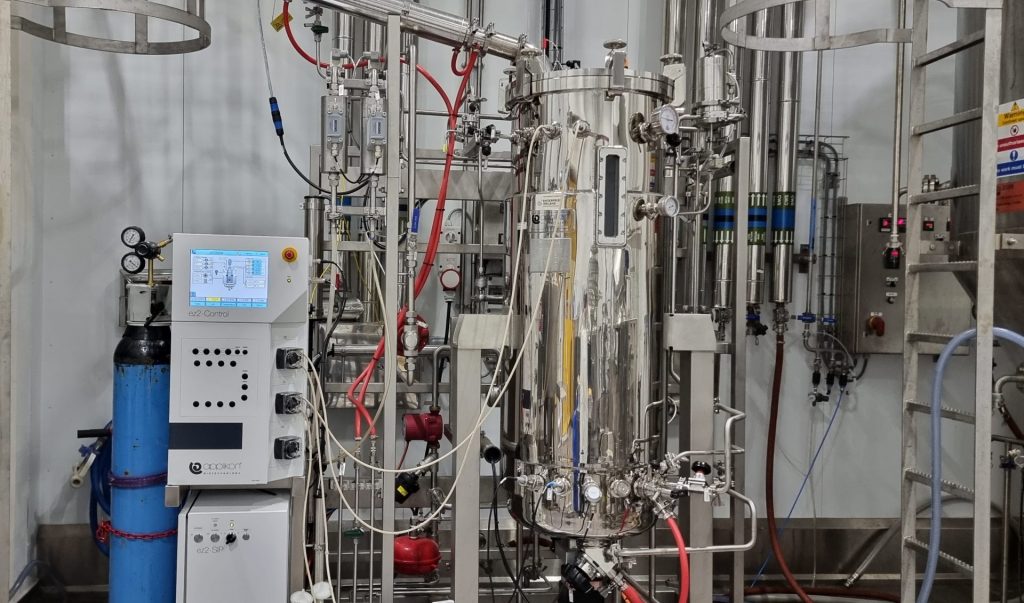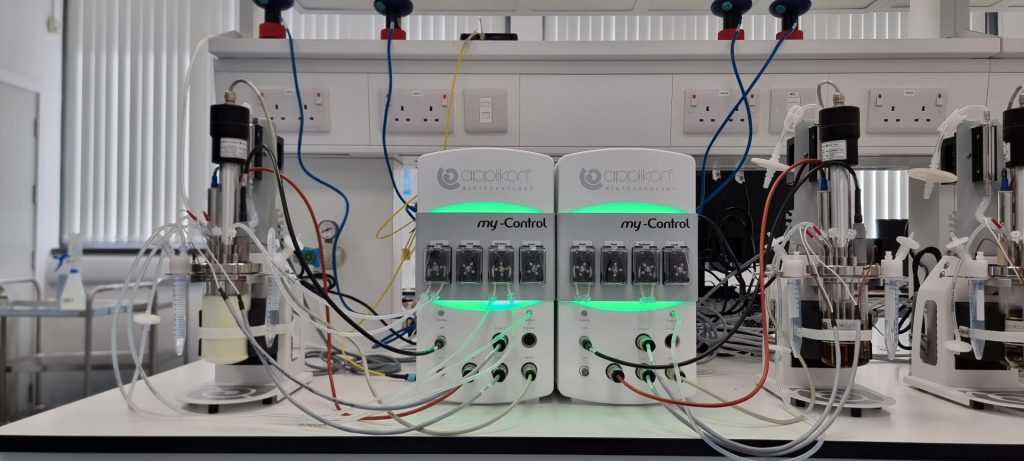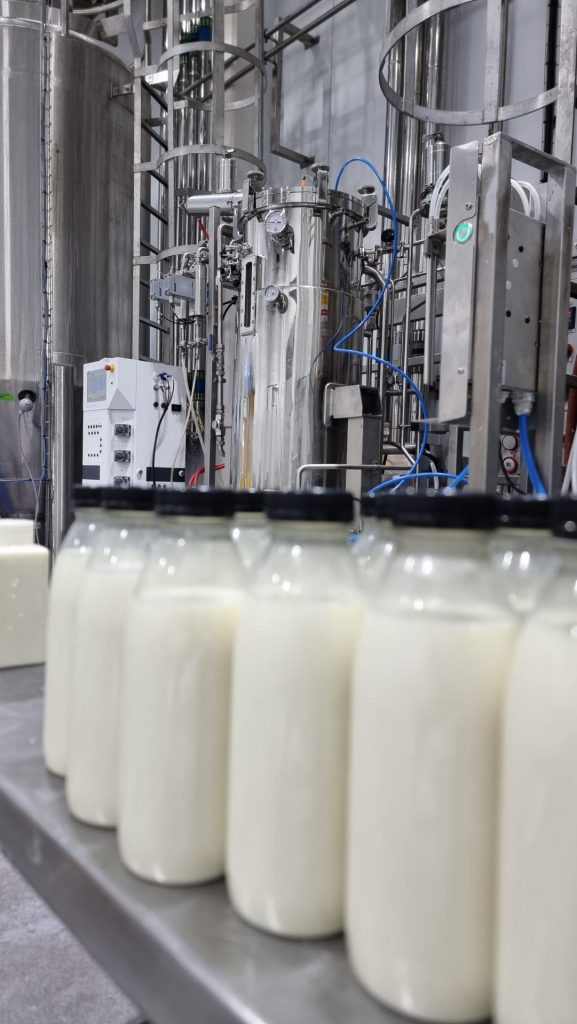DOMINO Case Study: Cultivating Cultures at the Teagasc Bioprocess Innovation Suite
The Teagasc bioprocessing group used the DOMINO project as a case study to promote the capabilities of their site. This article was written by Teagasc researchers John Leech and Antonio Lourenco. The original article is found here: Kefir-Scale-up.pdf
Artisanal fermented foods are celebrated for their health-promoting properties and intricate microbial composition, contributing to their distinct flavours, textures, and nutritional benefits. However, commercial fermentation often sacrifices this diversity for consistency. Our goal was to bridge this gap, replicating the complexity of traditional kefir on a commercial scale.
Our process began with the screening of multiple kefir samples, each scrutinized for our desired health benefit. Those kefirs exhibiting the desired effect became the foundation of our exploration. We isolated their microbial components and meticulously reconstructed our own complex community.

Systematically simplifying this community, we selectively removed microbes while ensuring health benefits remained intact. Each alteration underwent rigorous screening, with any compromise promptly rectified through reintroduction. This iterative process yielded a simplified yet potent kefir community, rich in health benefits.
The Bioprocessing Innovation Suite proved invaluable as we navigated the journey from artisanal to commercial-scale production. Beginning with the precision of 150ml Applikon mini-bioreactors, equipped with real-time monitoring capabilities, we crafted our milk kefir. These bioreactors offered stirring control, continuous feed dosing pumps, pH adjustment, anti-foam capabilities, temperature control, dissolved oxygen probes, and optical density sensors, providing us with state-of-the-art tools for our product development.

Scaling up to 1L volumes, the consistent performance and uniform vessel proportions of our bioreactors allowed us to maintain strict control over fermentation conditions, while also evaluating the scalability of our process.
Transitioning to 10L batches marked a significant milestone, presenting challenges that tested our understanding of kefir fermentation. Each obstacle, from variations in milk characteristics to adjusting inoculant levels, offered valuable insights for optimizing our production process.
This scaling up process ultimately allowed us to produce the kefir at 200L scale at Moorepark Technology Ltd. Rigorous monitoring and online continuous data recording, facilitated by the integrated control units of our bioreactors, ensured consistency and quality at every step.
Innovation, dedication, and multidisciplinary expertise were the driving forces behind our journey. Thanks to the Bioprocess Innovation Suite, we successfully transformed our artisanal-sourced kefir microbes into a commercial-scale product with consistent and well-understood health benefits.
